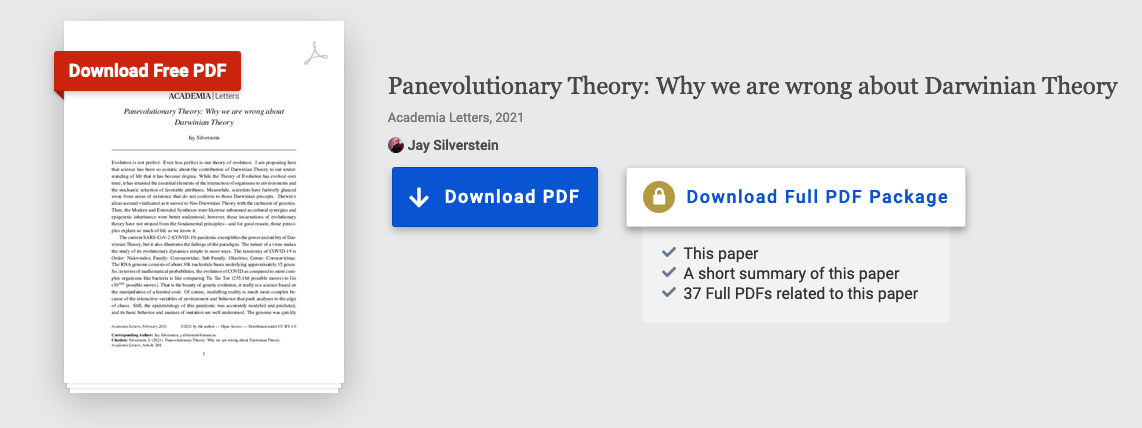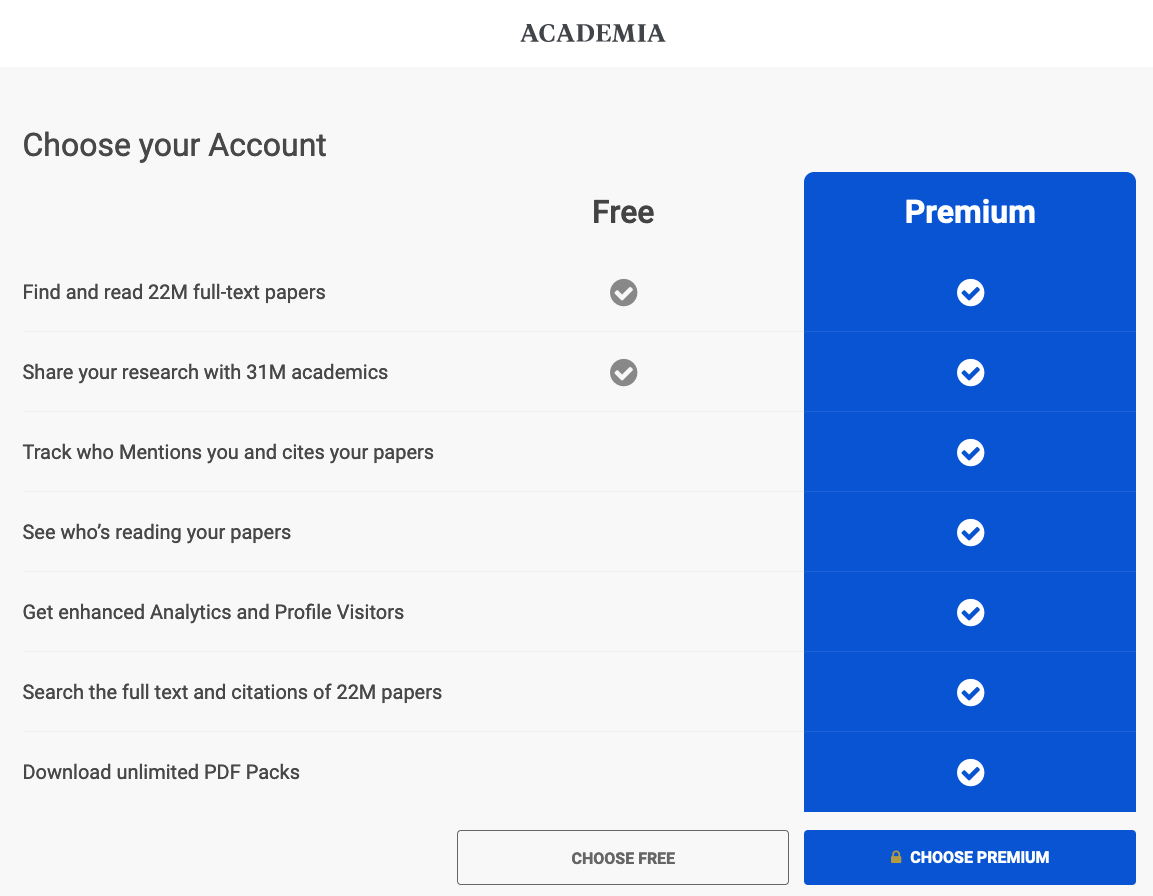"Academia Letters" and Click Bait
A new experiment seeks short works, then uses these to chum the waters

For all their talk of being disruptive and innovative, traditional marketing is at the heart of many new initiatives. A recent example is Academia Letters, a new journal focused on posting short articles so these can draw people into registering in order to gain access to the articles and dozens of related PDFs Academia.edu has obtained over the years.
Its all about making the top of the conversion funnel as wide and active as possible. Knowledge Unlatched is doing something similar with its registration barriers.
Academia Letters stub papers aren’t robustly reviewed or edited, and some seem redolent of click bait. Take, for example, a paper challenging the “dogma” of Darwin’s Theory of Evolution, while using this line without any apparent self-awareness:
While the Theory of Evolution has evolved over time . . .
You can’t make this stuff up.
And, with Academia Letters, that’s approximately the boundary:
We accept submissions from multiple points in the research lifecycle:
- Thought-provoking hypotheses that don't yet have the data to confirm or refute them
- Commentary on the field as a whole
- Traditional short reports We do not accept fiction or op-eds.
Submissions must not already have been published in any peer-reviewed publication.

Academia.edu received $16 million in funding from China’s TenCent in 2019, and has developed into a slicker version of its former self. Academia Letters is the first foray into the journals space I’ve seen from the organization.
It’s a journal driven by and for registrations and logins. Hit nearly any page, and you’re prompted to share your Google, Apple, Facebook, or Academia.edu login. The design is slick, and obviously the tech team spent a lot of time on this part of the site. Using Google to create an account grants Academia.edu access to your contacts, something they seem to really want. After all, they can keep stuffing the conversion funnel that way.
The short papers appear to be bait to get users to register and interact with more of the PDFs Academia.edu has acquired over time:

The review process for the papers is described as follows:
The review process is mostly transparent:
- The author’s name will be shared with reviewers.
- Positive reviews and the reviewer’s name will be published alongside the article.
- To ensure honest critical feedback, critical reviews will not be published. They will be shared anonymously with the author.
For the paper above, I couldn’t locate any positive reviews, attributed or otherwise. Also, according to Publons, Academia Letters does not allow its reviews to be publicly displayed.
The strategy here seems pretty clear — entice users with short, controversial or speculative click-bait articles, draw them into registering to get a bolus of PDFs related to the topic, and then use those registrations to draw more PDFs and users into the system.
It’s traditional marketing in a sense, but with the twist of using a “journal” and “papers” on top of a storehouse of PDFs of real papers from true journals to attract and convert traffic into the marketing machinery. Is this the kind of thing that advances human knowledge, or something that simply advances commercial interests?
The end result of their e-commerce funnel is a request to get Premium access for USD$99 per year, billed at USD$8.25/month. There are also student and group rates.

This type of offering from Academia.edu is not new, but using Academia Letters to chum the waters seems to be a recent development. Academia.edu continues to have reputational and trust issues, and it’s unclear this helps with those.
With a $16 million investment to justify, Academia.edu seems to be hustling to find ways to pump up their game. Letters is an interesting new tactic, but is not an advance for science or scientific publishing. It seems a cynical use of knowledge-based formats as part of a traditional marketing approach, leaving the search for truth as a secondary or tertiary concern.